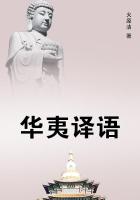After endeavoring to point out to him the folly of such a proceeding, I finally suggested that we should take the other members of our Club into our confidence, and abide by their decision; to which he agreed. But, to his chagrin, the others, far from participating in his delicacy, seemed to enjoy Tournelli's unexpected wealth with a vicarious satisfaction and increase of dignity as if we were personally responsible for it. Although it had been unanimously agreed that we should make no allusions, jocose or serious, to him, nor betray any knowledge of it before him, I am afraid our attitude at the next dinner was singularly artificial. A nervous expectancy when he approached us, and a certain restraint during his presence, a disposition to check any discussion of shares or "strikes" in mining lest he should think it personal, an avoidance of unnecessary or trifling "orders," and a singular patience in awaiting their execution when given; a vague hovering between sympathetic respect and the other extreme of indifferent bluntness in our requests, tended, I think, to make that meal far from exhilarating. Indeed, the unusual depression affected the unfortunate cause of it, who added to our confusion by increased solicitude of service and--as if fearful of some fault, or having incurred our disfavor--by a deprecatory and exaggerated humility that in our sensitive state seemed like the keenest irony.
At last, evidently interpreting our constraint before him into a desire to be alone, he retired to the door of a distant pantry, whence he surveyed us with dark and sorrowful Southern eyes.
Tallant, who in this general embarrassment had been imperfectly served, and had eaten nothing, here felt his grievance reach its climax, and in a sudden outbreak of recklessness he roared out, "Hi, waiter--you, Tournelli. He may," he added, turning darkly to us, "buy up enough stock to control the board and dismiss ME; but, by thunder, if it costs me my place, I'm going to have some more chicken!"
It was probably this sensitiveness that kept us from questioning him, even indirectly, and perhaps led us into the wildest surmises.
He was acting secretly for a brotherhood or society of waiters; he was a silent partner of his German employer; he was a disguised Italian stockbroker, gaining "points" from the unguarded conversation of "operating" customers; he was a political refugee with capital; he was a fugitive Sicilian bandit, investing his ill-gotten gains in California; he was a dissipated young nobleman, following some amorous intrigue across the ocean, and acting as his own Figaro or Leporello. I think a majority of us favored the latter hypothesis, possibly because we were young, and his appearance gave it color. His thin black mustaches and dark eyes, we felt, were Tuscan and aristocratic; at least, they were like the baritone who played those parts, and HE ought to know. Yet nothing could be more exemplary and fastidious than his conduct towards the few lady frequenters of the "Poodle Dog" restaurant, who, I regret to say, were not puritanically reserved or conventual in manner.
But an unexpected circumstance presently changed and divided our interest. It was alleged by Clay, the assistant editor, that entering the restaurant one evening he saw the back and tails of a coat that seemed familiar to him half-filling a doorway leading to the restaurant kitchen. It was unmistakably the figure of one of our Club members,--the young lawyer,--Jack Manners. But what was he doing there? While the Editor was still gazing after him, he suddenly disappeared, as if some one had warned him that he was observed. As he did not reappear, when Tournelli entered from the kitchen a few moments later, the Editor called him and asked for his fellow-member. To his surprise the Italian answered, with every appearance of truthfulness, that he had not seen Mr. Manners at all! The Editor was staggered; but as he chanced, some hours later, to meet Manners, he playfully rallied him on his mysterious conference with the Italian. Manners replied briefly that he had had no interview whatever with Tournelli, and changed the subject quickly. The mystery--as we persisted in believing it--was heightened when another member deposed that he had seen "Tom," the Western waiter, coming from Manners's office. As Manners had volunteered no information of this, we felt that we could not without indelicacy ask him if Tom was a client, or a messenger from Tournelli. The only result was that our Club dinner was even more constrained than before. Not only was "Tom" now invested with a dark importance, but it was evident that the harmony of the Club was destroyed by these singular secret relations of two of its members with their employes.















